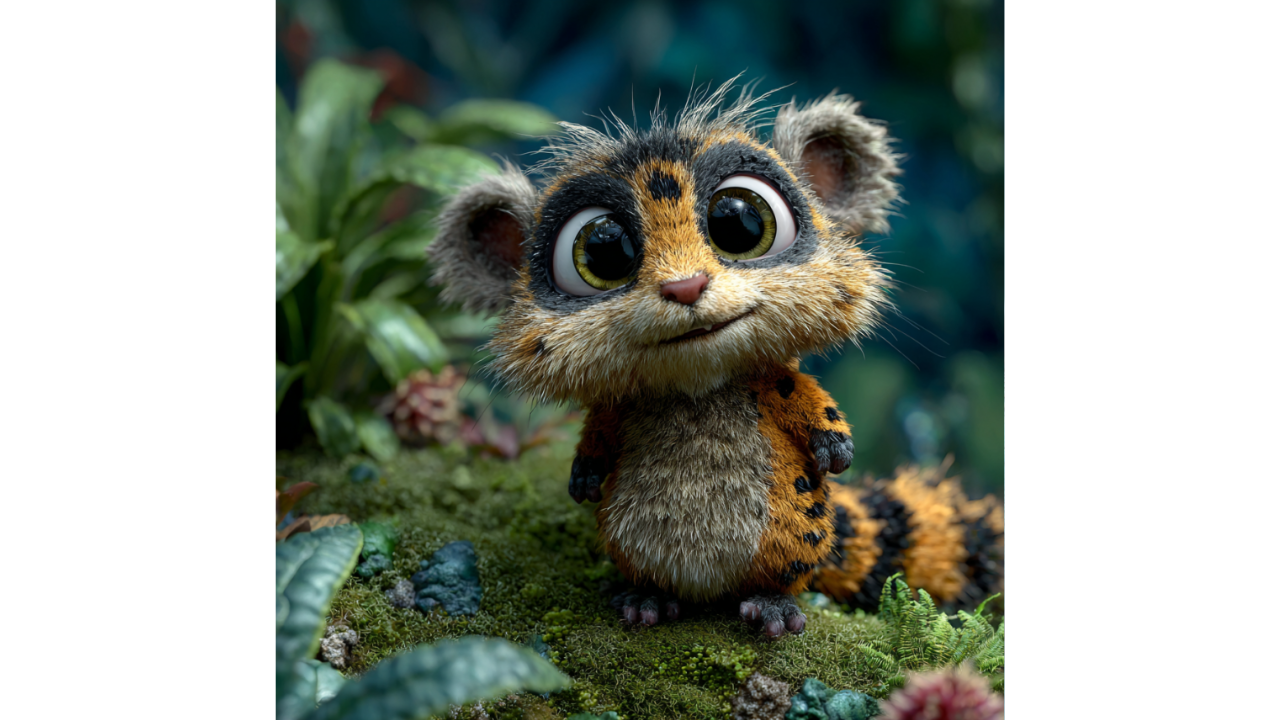OpenAI's First Hardware Might Be Earbuds Named "Dime"
We've been waiting for OpenAI to make something we can hold. Turns out, it might not be the AI wristwatch of our sci-fi dreams—it's probably just...

While Hollywood executives clutch their Hermès bags and wonder if ChatGPT can write better dialogue than their overpaid script doctors, OpenAI just dropped the mic with Critterz—a full-length animated feature that cost less than Robert Downey Jr.'s catering budget and will be completed in nine months instead of the usual three-year slog.
The audacity is breathtaking. The implications are seismic.
@aeyespybywinsome OpenAI is dropping irs first feature length AI animated film #critterz tterz
♬ original sound - AEyeSpy
Here's what should make every studio executive's Italian leather chair creak uncomfortably: Critterz carries a sub-$30 million budget while Pixar's recent efforts like Toy Story 3 commanded $200 million, Frozen required $150 million, and even Coco demanded $175-200 million. We're not talking about cutting corners—we're witnessing the entire economics of animation getting dragged into the 21st century by its digital collar.
The film, spearheaded by OpenAI's Chad Nelson and produced with partners Vertigo Films and Native Foreign, will debut at Cannes Film Festival in 2026. That's right—from concept to Cannes in less time than it takes most studios to argue about the color of a protagonist's shoes.
The original 2023 Critterz short already proved the concept, combining OpenAI's DALL-E with traditional animation techniques and earning festival recognition at Annecy, Tribeca, and Cannes Lions. Now the feature-length version promises to deploy the full arsenal: GPT-5 for production tasks, DALL-E for concept art, and Sora for video generation.
The mathematics of creation are shifting beneath Hollywood's feet, and the smart money sees opportunity where others see existential dread. Independent creators and smaller studios could soon compete with billion-dollar behemoths, armed with affordable tools that reduce the barriers to entry.
Consider the human-AI collaboration model Critterz employs: writers from the team behind "Paddington in Peru" penned the script, artists provide initial sketches to guide AI output, and professional voice actors handle performances. This isn't replacement—it's augmentation. The creative soul remains human while the grunt work gets accelerated.
For marketers, this represents a paradigm shift toward rapid prototyping and audience validation. Imagine testing animated concepts with real audiences in weeks, not years. Picture campaigns that can iterate on creative executions in real-time based on engagement data. The agility advantage is staggering.
We've seen similar disruptions democratize other creative fields. When desktop publishing killed the typesetting industry, it didn't end beautiful design—it multiplied the number of people who could create it.
Yet the resistance isn't merely Luddite panic. Hollywood's 2023 strikes saw writers and actors unite for the first time since 1960, securing historic agreements that regulate AI use and protect human creative contributions. Their concerns weren't unfounded—they were prophetic.
Major studios like Disney, Universal, and Warner Bros. Discovery have filed copyright infringement lawsuits against AI firm Midjourney, alleging "brazen theft" and illegal training on iconic characters. The legal battlefield is littered with questions that Critterz will help answer: What constitutes fair use in AI training? Who owns the creative output? How do you compensate human contributors in a hybrid workflow?
Voice actors are already experiencing AI replacement, with some discovering their synthesized voices used without consent in TV promos and video games. The fear is visceral and justified—one voice actor told researchers they were essentially told "we have three years of your audio recorded and we don't need you anymore."
There's also the audience question that haunts every innovation: will moviegoers embrace a film that openly wears its AI origins, or will the uncanny valley of algorithmic creativity repel consumers already reluctant to leave their couches? Early box office acceptance could determine whether Critterz births a movement or becomes a cautionary tale.
We're witnessing the first major Hollywood production to fully integrate next-generation AI tools, and frankly, it's about damn time. Film production in 2024 remained 11% below 2022 levels despite an 18% increase from strike-affected 2023. The industry desperately needs efficiency innovations that preserve creative integrity while slashing bloated budgets.
Critterz isn't just a movie—it's a proof of concept for the future of content creation. If OpenAI succeeds, expect every studio to frantically reverse-engineer their approach. If they fail, the blame will fall on execution, not the underlying technology.
For growth marketers, the lesson is clear: the tools that democratize creation inevitably favor the agile over the entrenched. While legacy players debate ethics and economics, nimble competitors are already building tomorrow's creative pipelines.
The real question isn't whether AI will transform entertainment—it's whether your organization will lead that transformation or get trampled by it. Critterz just fired the starting gun on that race.
Ready to harness AI's creative potential for your brand's content strategy? Our growth experts at Winsome Marketing can help you implement cutting-edge AI workflows that amplify human creativity rather than replace it. Because in the age of artificial intelligence, the most successful brands will be those that master the art of human-AI collaboration.

We've been waiting for OpenAI to make something we can hold. Turns out, it might not be the AI wristwatch of our sci-fi dreams—it's probably just...
-1.png)
Watching Microsoft and OpenAI's relationship disintegrate feels like witnessing your friend's messy divorce—you saw the signs, but nobody wanted to...